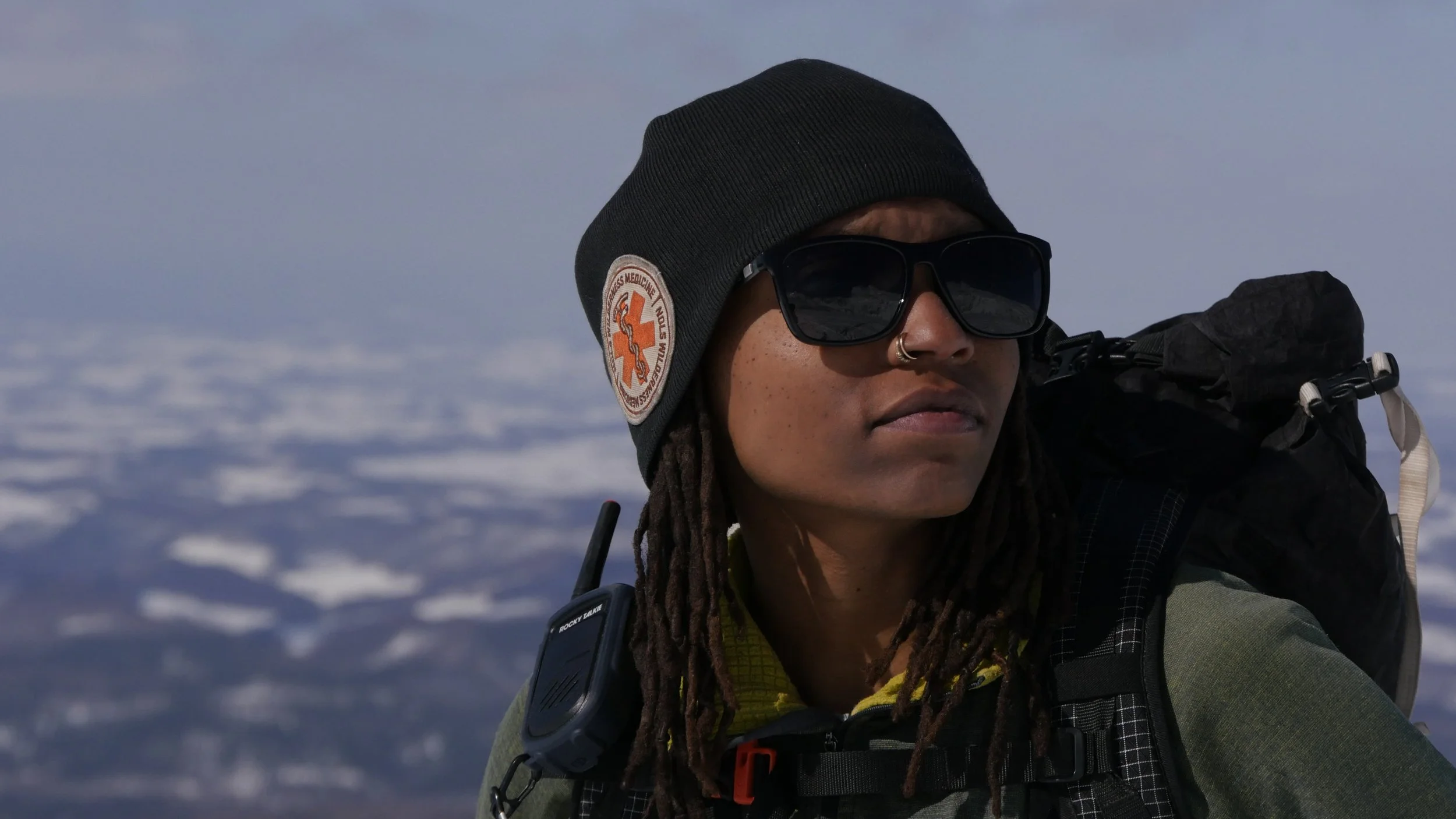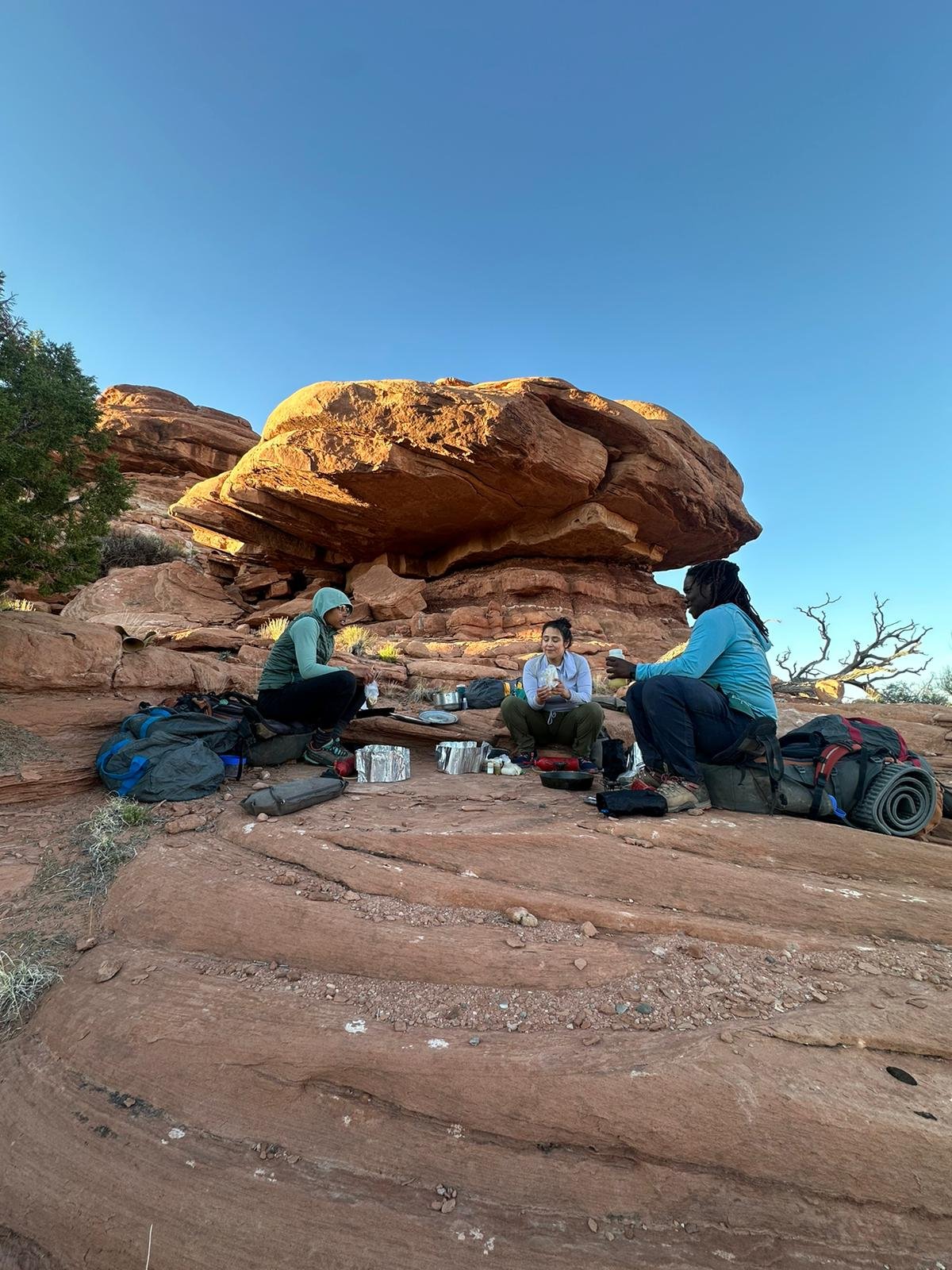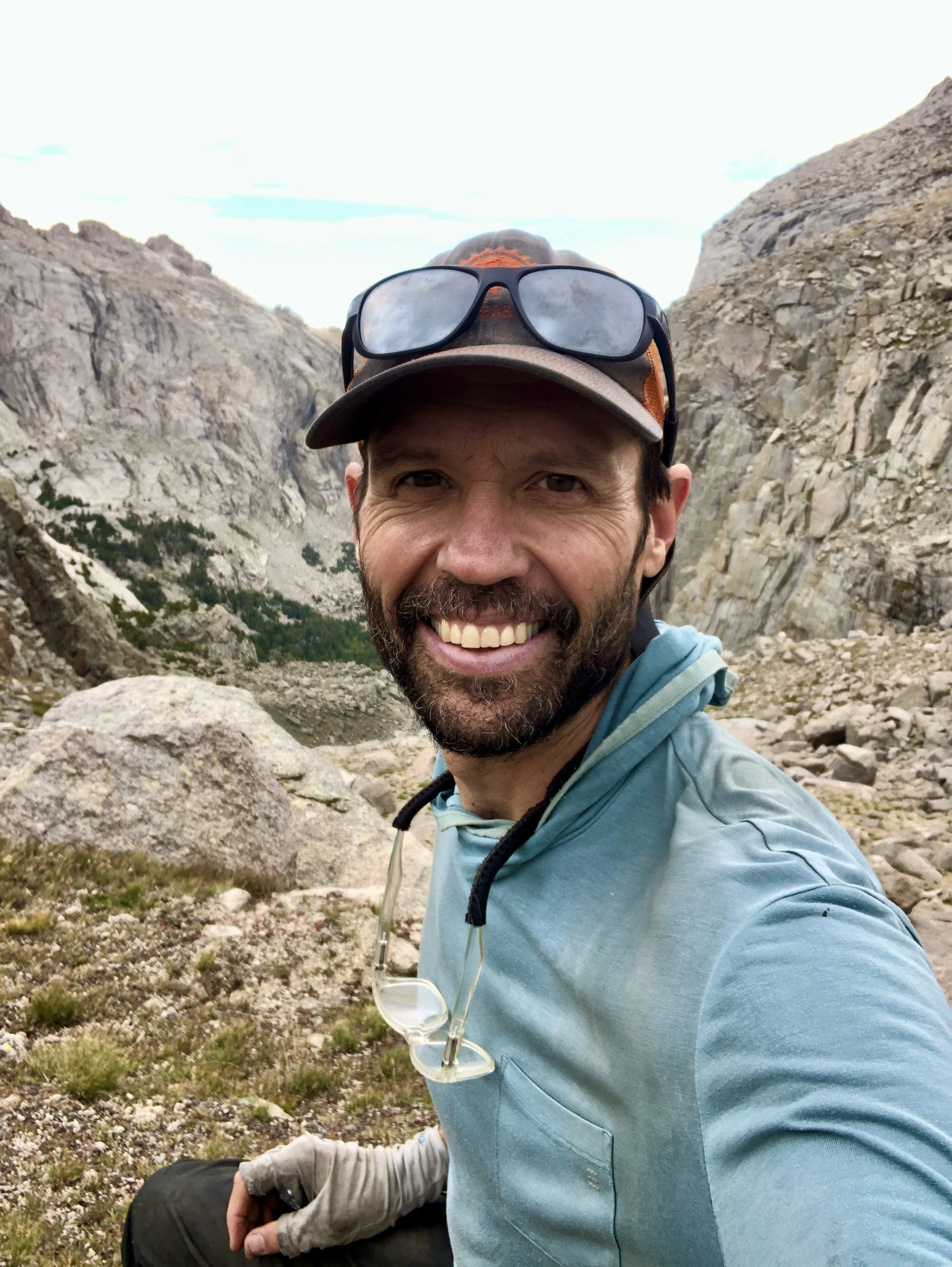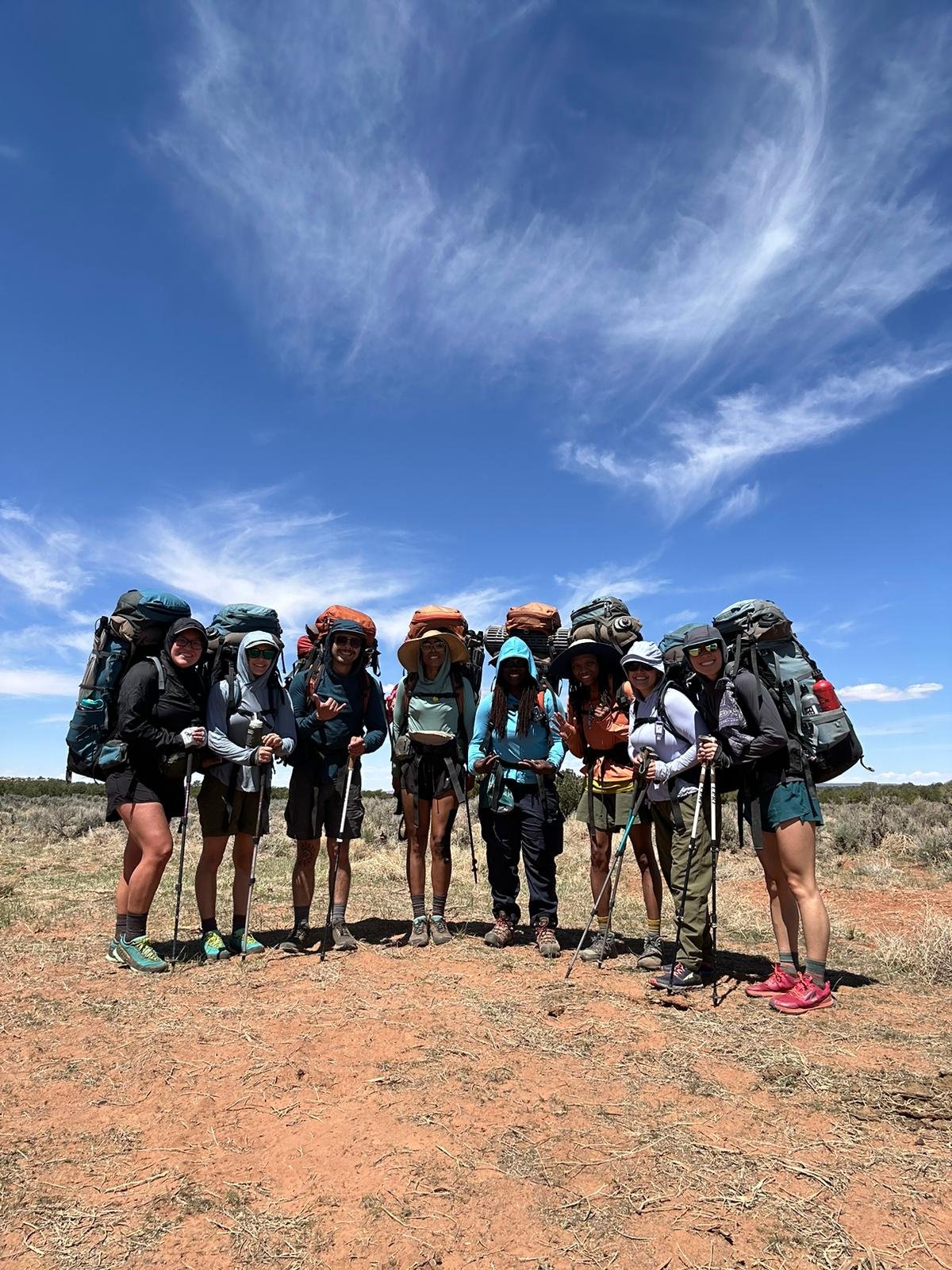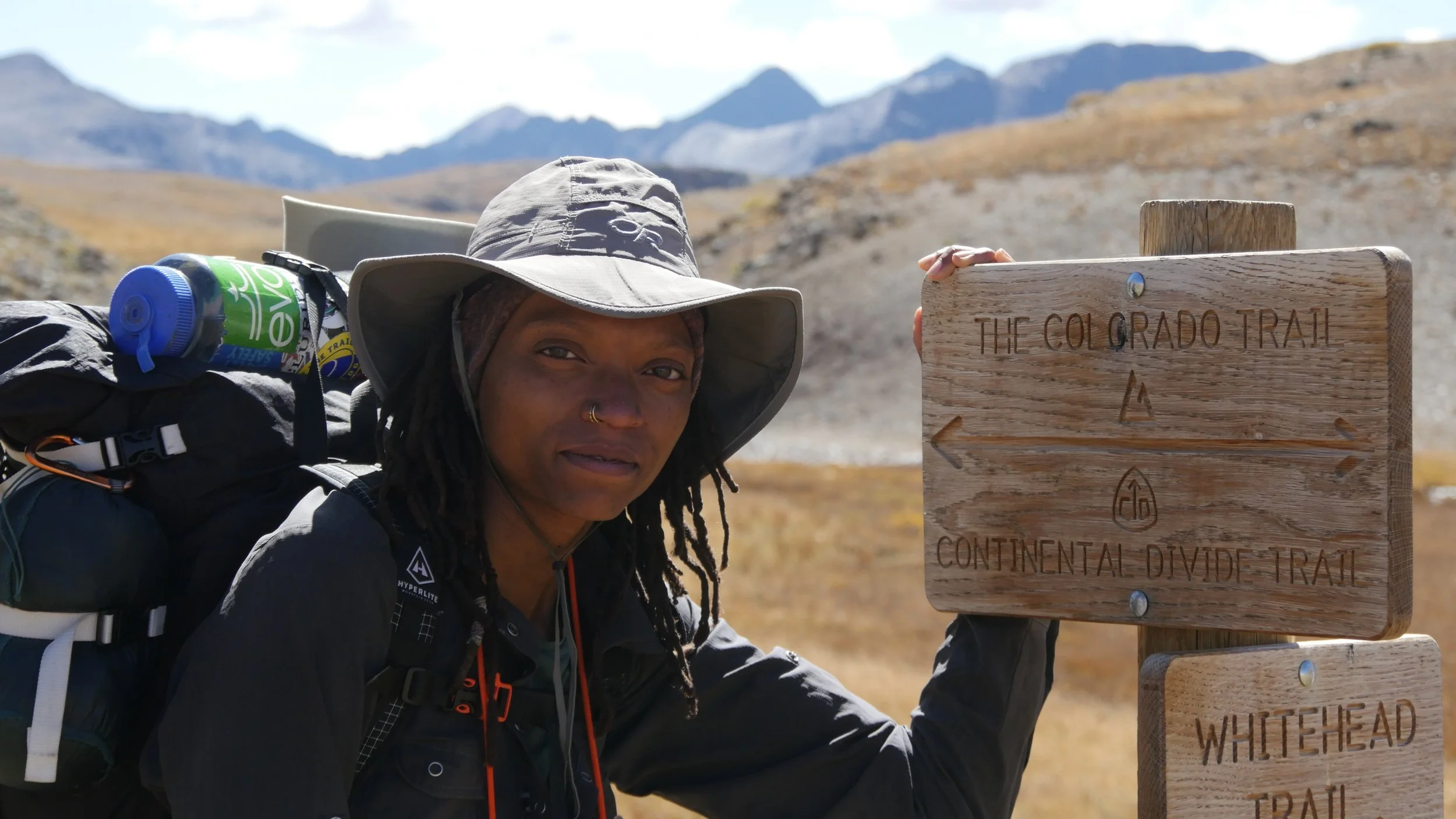Overcoming Nature Trauma as a Backpacking Instructor
Fear has two definitions: Face Everything and Rise, or Forget Everything and Run. On my first hike, the latter fear took hold while walking the Appalachian Trail in Virginia. I sprinted to my friend half a mile ahead as terrorizing thoughts of being attacked by a bear or worse, a human, washed over me. As a suburban girl from Cleveland, I was way out of my element and began to panic. Surprisingly, I kept coming back for more nature because I appreciated the peace and joy - just not alone. Currently, I work for National Outdoor Leadership School (NOLS) as a backpacking instructor where we take groups of people on two weeks to 30 day expeditions. Backpacking allows me time and space to contemplate my thoughts surrounded by concepts bigger than humanity. Being outside has become spiritual for me. My ancestors talk to me through art and song on long walks because they are honored when I feel joy outside. I extend my joy to them, and they send their joy back to me.
Growing up, my family didn’t do many outdoor recreational activities, and history tells me neither did my ancestors. For enslaved people, outside meant work and no play. Even after enslavement, black people had a prestigious image to uphold and aimlessly romping around the woods, wasn’t it? Eventually, I learned the initial emotions I felt on my first hike were not just my own but a product of encoded DNA on how to react.
Over many years of trying and being exposed to entry-level outdoor activities, I noticed I felt good outside and wanted to keep chasing that feel-good feeling. So, I quit the corporate tech world in 2020 because the big paychecks weren’t worth being inside most of the day, and the mild depression I acquired from every job. Snowboarding instruction was my gateway into the outdoor industry, and then I pursued wilderness therapy. By working as a field guide in wilderness therapy, I helped others and myself get more attuned to the wild outdoor world we once knew so well.
Now, as a National Outdoor Leadership School (NOLS) backpacking instructor, I do outdoor activities to liberate my ancestors and help others, like me, find their liberation. Within the last 200 years, modern civilization has lost touch with the wild nature that we evolved from. We spend more time inside, and our food has turned from our medicine into a coping mechanism in some cases. Even though there is a disconnect, we are still part of nature and its effects on us have proven to be beneficial. At NOLS we teach wilderness, leadership, and environmental skills, empowering students to make meaningful connections with themselves, others, and the world around them. For further insight on our relationship with nature, I interviewed Jamie O’Donnell, instructor and editor of NOLS’ Environmental Studies book.
How did you first get curious about nature?
I had various professors or mentors who would help me ask more questions. And so I think that idea of asking questions was an important part for me and being curious and noticing things that I hadn't noticed before. Q
Why don’t people care about climate change?
I think people do care and that is the problem. You can care so much and yet trying to coordinate 8 billion people to a single cause, for a sustainable future, is challenging. I care a lot and I just bought two plane tickets. So do I really care? There’s caring and then there’s sacrifice or paradigm changes. Like I will not see my family again, or I will bike there. Unfortunately, caring isn’t enough.
What are some challenges with adjusting to climate change?
We have developed amazing ways to utilize natural resources to have more access to energy than we’ve ever had before. Fossil fuels are amazing energy sources. So all of these things are integrated into our lives and to just flip a switch and give that all up has been hard, and will be hard. I suspect the kinds of change we need will probably have massive impacts on economic systems. Economic systems have big impacts on social systems, which have impacts on cultural systems.
As an educator, what is something you find fun to help students explore?
That we are not separate from these systems that we live in. It’s easy to inspire people about the natural world when we go to these beautiful places. But they’re no different of an ecosystem than New York City, or Paris. All of these places are ecosystems and the impact humans have had on some of them is profoundly amplified like in a city. We even use language that separates us out like saying things are “natural” or “man-made.” Acknowledging that something isn't natural because we made it is to other ourselves and to say we are separate.
It seems you want people to know we’re more connected than we think!
Yes, the more these problems become exacerbated the more the haves and the have nots will play out and the inequity of that will continue to become more exacerbated.
How else are we connected?
The economic systems behave in the same way ecological systems do, and so do cultural systems. They all operate in positive feedback loops that exacerbate change, and negative feedback loops that slow rates of change. They all exist within certain tolerances. They can move through a dynamic balance but if you exceed certain tolerances then they collapse. We can see ecological systems collapse, we can argue certain cultural systems collapse, and we know for sure ecosystems can collapse. So the idea of how systems behave reinforces the idea of how they’re all interconnected and there’s beauty in that.
How do we fix the climate problem without changing our lifestyle?
There’s an expression “necessity is the mother of all invention.” As history progresses we will see a lot more necessity driving change.
Why are infrastructure changes happening so slowly?
If you look at the data it’s not rocket science. We’re all spinning our reels talking about how we need to cut carbon and change these industries. But, all of those changes equate to lifestyle changes for us. And that's the part we’re struggling with. We want the change to occur but we kind of want it to occur without actually changing the way we’re moving through the world on a day-to-day basis.
What are some flaws when teaching about nature?
We teach people to care about these wild places because they’re important and then it stops there. Unintentionally, it implies when you’re home those rules don’t matter because that's not a wild place. It’s a man-made place. No, it’s no different. If you live in New York City you live in an ecosystem. And the things you do in New York City matters in the Wind Rivers of Wyoming because it’s all interconnected. We can’t build a fence around these beautiful wild places. They are impacted by everything we do and everything on the planet. So we have to think holistically about how we choose to live.
How to get someone to wonder about nature?
Ultimately, you have to take them outside. People have to have exposure to inspiration. Wild places are powerful and potent but they don't have to be big, grandiose, wild places for people to be curious and to wonder about things. Gardens and parks can be such powerful ways to interact with living things. You can see these things anywhere there is life. And there is life everywhere.
Why is wondering so important?
As an educator, it's not enough to just teach people content. Like “here’s this flower, this is how humans can use it.” But if it stops there and it's not also through a lens of curiosity or wondering, then people won’t continue to ask questions and to learn. Curiosity and wonder are so important to our lives and our relationships and our communities and how we connect with the natural world.
How to start wondering?
There’s so many different ways you can move around on the planet that allow you to wonder. You could do it sitting inside your house looking out the window. Challenging ourselves to put down those distractions, build new relationships and friendships that open up opportunities for exploration and wonder are important. And, with respect to the natural world, getting outside and touching things, feeling things, tasting things.
If you want more knowledge from Amber and her journeys checkout her blog amberofalltrades.net or on sandgrabproductions.com

